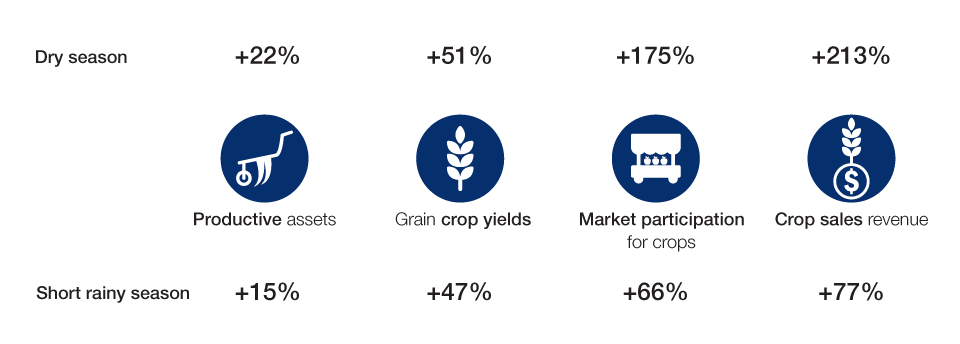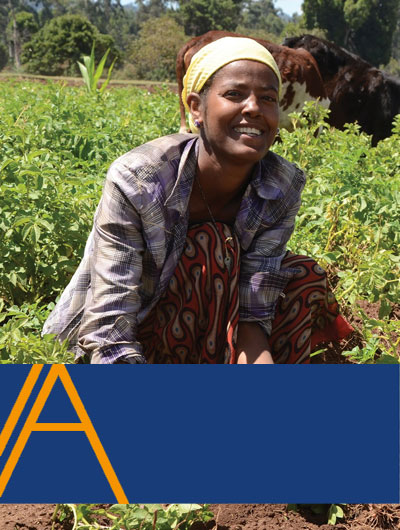Impact assessment: Participatory Small-Scale Irrigation Development Programme
Impact assessment: Participatory Small-Scale Irrigation Development Programme
Rural people in the Ethiopian highlands depend mainly on rain-fed subsistence farming for their livelihoods. The unreliable rainfall and frequent droughts affecting the area can often prevent them from improving their crop yields and thus their household income. The Participatory Small-Scale Irrigation Development Programme was designed to exploit the potential of irrigated agriculture to improve the food security, family nutrition, and incomes of poor rural households in Amhara, Oromia, Tigray, and Southern Nations, Nationalities and Peoples Region (SNNPR).
Small-scale irrigation systems were constructed on about 12,000 hectares of land to bring water to farms throughout the year. As well access roads connecting the irrigated areas to local markets were improved to provide greater opportunities for small farmers to earn income from crop sales. The project used a fully participatory approach whereby local communities owned and managed the irrigation systems through their water users' associations, and were trained in how to manage and distribute water efficiently.
Small farmers also benefited from training to improve farm productivity, including in seed production, post-harvest management and water conservation. Through the project, women were encouraged to join the decision-making bodies of water users' associations, and to establish home vegetable gardens. This project underwent a rigorous impact assessment using high-frequency data collected from 1,033 households across four seasons over 12 months.
Key impact estimates
An impact estimate is calculated as the difference in mean outcomes between the treatment group (project participants) and the comparison group (non-participants).
More than 300,000 farmers benefited from the irrigation systems, allowing them to grow crops throughout the year and increase revenue from crop sales, particularly in the dry season. Key results include:

Main lessons
This study provided the following lessons for future rural development policies and projects:
- Irrigation systems can act as an effective risk management strategy for small farmers, particularly those most vulnerable to unreliable rainfall and frequent drought, by allowing them to grow crops and earn income throughout the year.
- In order for small-scale irrigation schemes to effectively increase the production of high-value crops, including vegetable and fruit, which are highly perishable, future projects should complement them with marketing support.
- Projects aiming to improve the resilience of smallholders to climate-related shocks should consider collecting data at a high frequency over a long period of time, in order to capture the impacts of the slow-moving stressors, such as slow onset of drought, that cause vulnerability.
